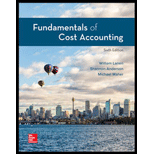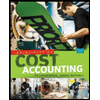
Concept explainers
Fixed costs are often defined as “fixed over the short run.” Does this mean that they are not fixed over the long run? Why or why not?
Comment on the given statement about the nature of fixed costs.
Explanation of Solution
Fixed cost:
Fixed cost does not vary with the change in the production of the goods. It stays the same at the various level of output. Generally, fixed cost is not output-related; it is time-related.
“Fixed over short run”:
The short run has a time-span of 12 months or less than 12 months. Generally, fixed cost remains fixed over the short run of business. Insurance, rent, interest, taxes, and depreciation are the fixed cost of the business, and these costs do not change in the short run of business. But this does not mean that they are fixed over the long run of the business. Fixed cost may remain fixed or may change in the long run. It depends on the course of activity and management decision.
Example:
A business may choose to relocate its plant from location A to location B after five years. Location B has higher rent then location A. This will lead to the change in fixed cost as business has to pay higher rent in location B. If the management does not choose to relocate then the fixed cost will not change.
Thus, the fixed cost remains fixed in the short run, but it may or may not vary in the long run depending upon the course of activity and decisions of management.
Want to see more full solutions like this?
Chapter 4 Solutions
Loose-leaf For Fundamentals Of Cost Accounting
- Accounting Question: Lexington Enterprises requires $750,000 in assets and will be 100% equity financed. If the Earnings Before Interest and Taxes (EBIT) is $60,000 and the tax rate is 25%, what is the Return on Equity (ROE)? Need helparrow_forwardNeed answer the general accounting questionarrow_forwardPlease solve this question general Accountingarrow_forward
- What is the degree of operating leverage on these financial accounting question?arrow_forwardFinancial Accountingarrow_forwardAccounting Question: Lexington Enterprises requires $750,000 in assets and will be 100% equity financed. If the Earnings Before Interest and Taxes (EBIT) is $60,000 and the tax rate is 25%, what is the Return on Equity (ROE)?arrow_forward
- Principles of Accounting Volume 2AccountingISBN:9781947172609Author:OpenStaxPublisher:OpenStax College
 Principles of Cost AccountingAccountingISBN:9781305087408Author:Edward J. Vanderbeck, Maria R. MitchellPublisher:Cengage Learning
Principles of Cost AccountingAccountingISBN:9781305087408Author:Edward J. Vanderbeck, Maria R. MitchellPublisher:Cengage Learning Intermediate Financial Management (MindTap Course...FinanceISBN:9781337395083Author:Eugene F. Brigham, Phillip R. DavesPublisher:Cengage Learning
Intermediate Financial Management (MindTap Course...FinanceISBN:9781337395083Author:Eugene F. Brigham, Phillip R. DavesPublisher:Cengage Learning  Cornerstones of Cost Management (Cornerstones Ser...AccountingISBN:9781305970663Author:Don R. Hansen, Maryanne M. MowenPublisher:Cengage Learning
Cornerstones of Cost Management (Cornerstones Ser...AccountingISBN:9781305970663Author:Don R. Hansen, Maryanne M. MowenPublisher:Cengage Learning



